The Bastei rocks in Germany are a fascinating geological formation, created by water erosion over a million years ago
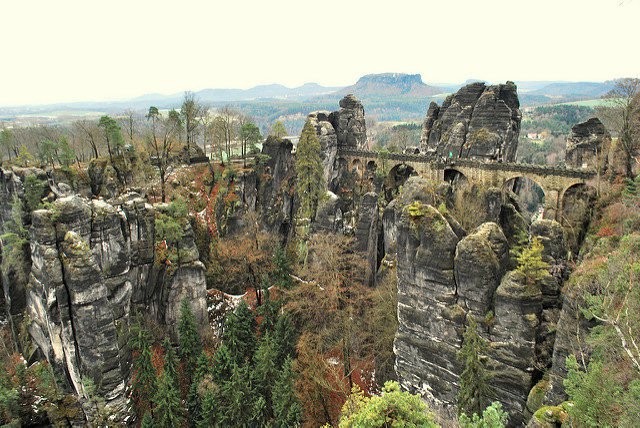
The Bastei is a rock formation towering almost 200 meters over the Elbe River in the Elbe Sandstone Mountains near Dresden in the German.
The Bastei formation and the man-made Bastei Bridge are the highlights of the Saxon Switzerland National Park area. This park, also called “the city of stone”, has been a tourist attraction for the past 200 years.
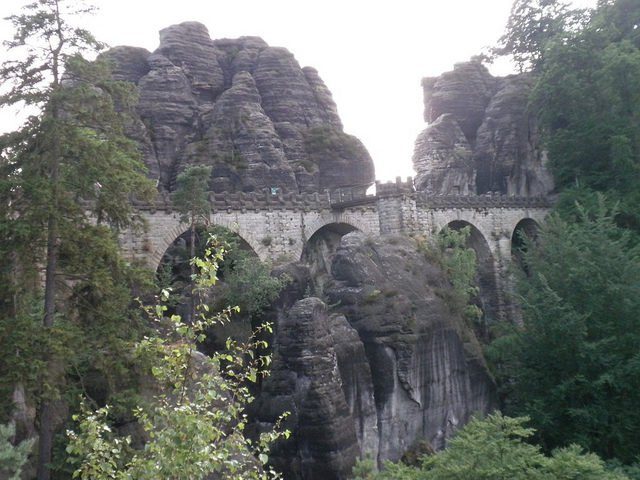
The Bastei rocks are a very interesting geological formation, and were created by water erosion over a million years ago. In 1814, a staircase with 487 steps was created that climbs out of the valley and up to the rocks. This staircase grants access to many of the area’s high peaks and big rock formations.
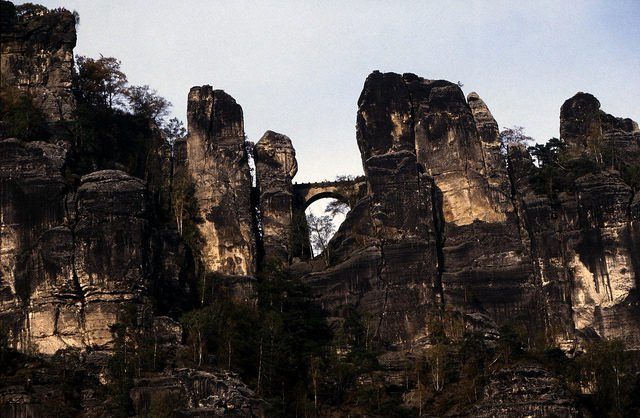
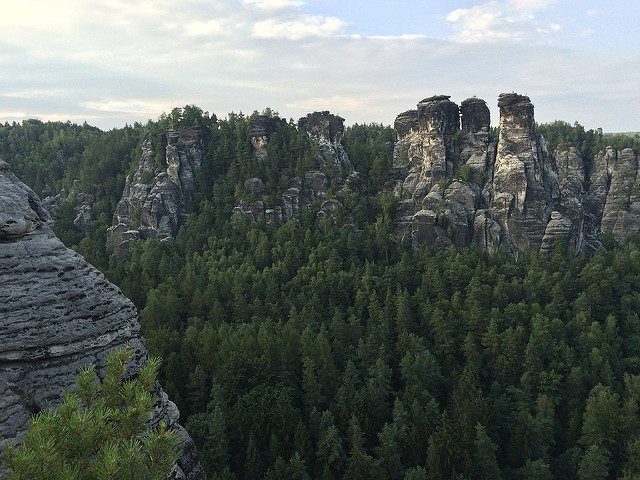
In 1824, a wooden bridge was built for the visitors that wanted to see the Bastei rocks. In 1851, the bridge was replaced by the present Bastei Bridge, which is made of sandstone.
It is a 76.5m long man-made bridge that doesn’t really lead anywhere in particular, but simply spans a number of the rocks which make up Bastei formation.
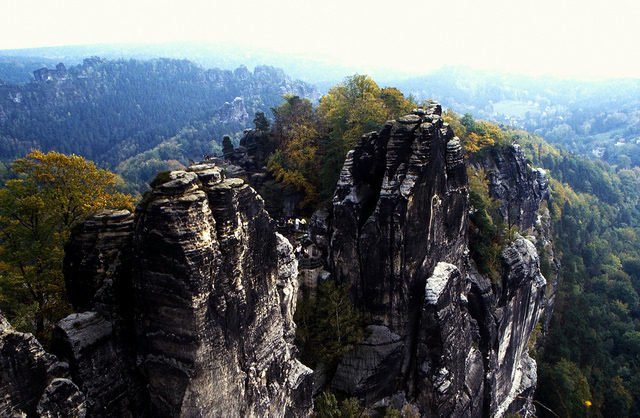
The spa town of Rathen is the main base for people wishing to visit the Bastei. The town can be reached from Dresden by paddle steamer on the river Elbe.
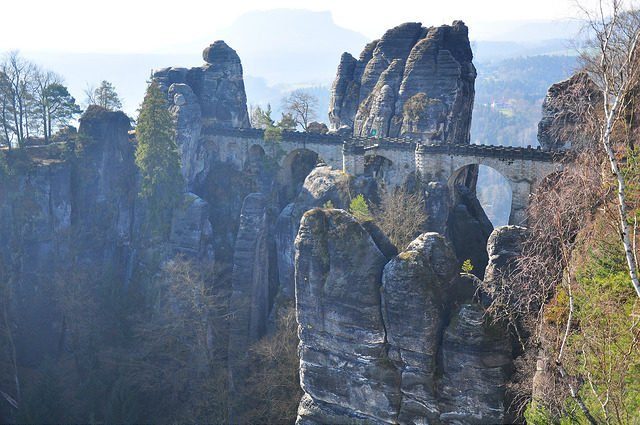
The ruins of the 11th century Neurathen Castle, the largest rock castle in Saxon Switzerland, can be reached via the Bastei Bridge. A walk around the area reveals timber rebates, rooms carved out of the rock, a cistern, and stone shot from a medieval catapult or slingshot that can still be seen atop the natural stone towers in the park.
The most fascinating place to visit is the Rock Open Air stage, which is a natural theater formed by the rocks, one of the most beautiful of its kind.
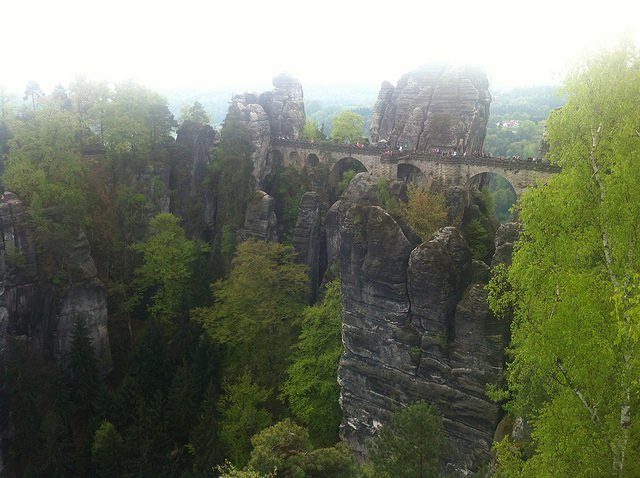
The Bastei has the highest number of visitors of all the lookout points in Saxon Switzerland. Today, it is a part of the core zone of the Saxon Switzerland National Park, in which especially strict conservation rules apply.
